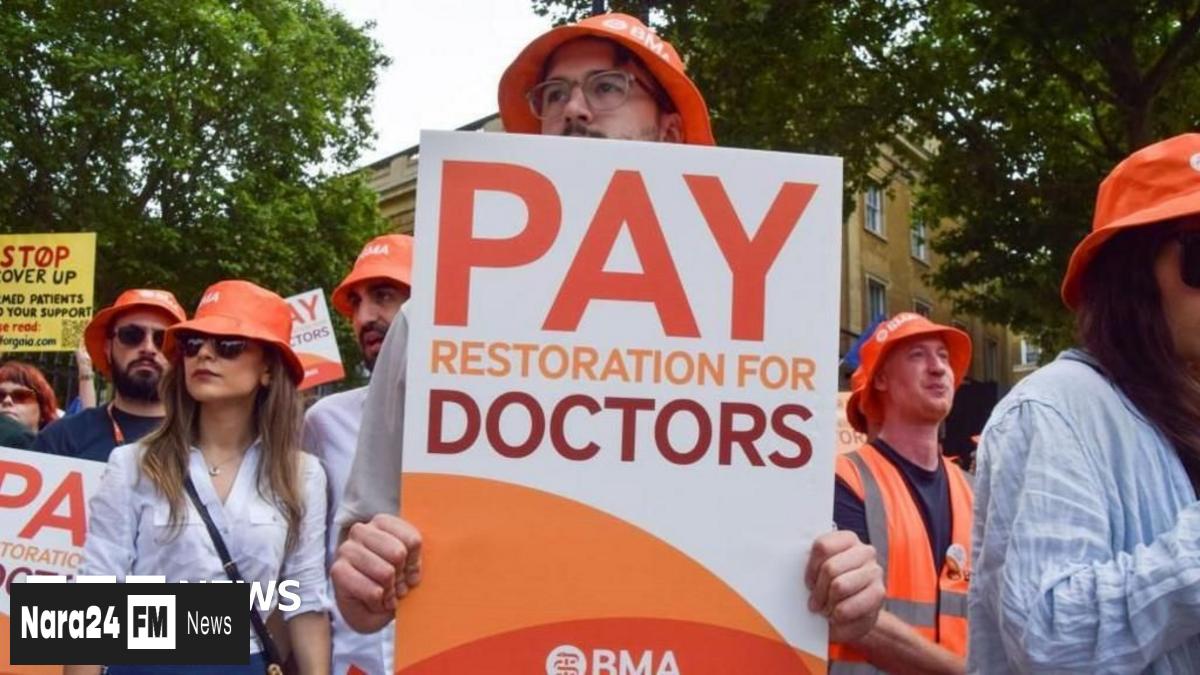In This Article
- NHS Faces Strain as Doctor Strike Begins
- Negotiations Break Down Over Pay and Conditions
- Impact on Patients and Service Adjustments
- Government Criticizes Doctor Union Over Strike Tactics
- Doctors Express Frustration Over Strike Decision
- Focus on Doctor Pay and Working Conditions
As a nationwide strike by resident doctors in England commenced on Friday, Health Secretary Wes Streeting warned the NHS would endure a difficult period, emphasizing the government’s commitment to minimizing service interruptions. The walkout, the 12th such action since March 2023, follows a breakdown in negotiations between the government and the British Medical Association (BMA) over pay and working conditions.
Thousands of junior doctors, now referred to as resident doctors, have taken to picket lines at hospitals across the country, demanding improved compensation. While the BMA has agreed to a limited number of requests for doctors to return to work, including two anaesthetists at Lewisham Hospital and staff at Nottingham City Hospital’s neonatal unit, the union maintains that pay restoration is the only solution to address years of underfunding.
Patients are being urged to attend non-urgent appointments unless notified of cancellations, with NHS England stating that urgent care, A&E services, and GP surgeries will remain operational. However, some hospitals report over 80% of non-urgent procedures are still proceeding, though the BMA has raised concerns about staff being overburdened.
Health Secretary Streeting reiterated the government’s stance, stating: “We will not let the BMA hold the country to ransom.” Meanwhile, Prime Minister Keir Starmer criticized the union in a Times op-ed, calling the strike “damaging” and accusing the BMA of “rushing” into action. He warned of significant harm to the NHS and the public.
Residents doctors, who make up nearly half of England’s medical workforce, highlighted their frustration during the strike. At St Thomas’ Hospital in London, Kelly Johnson, a resident doctor, said the perception of the strike as “selfish” was “a slap in the face,” stressing their dedication to patient care. Similarly, Cristina Costache, a paediatrics registrar in Leeds, described the decision to strike as “difficult,” balancing her commitment to work with solidarity for her colleagues.
Despite a 5.4% average pay rise this year, the BMA argues that real wages have dropped by 20% since 2008 when inflation is considered. Resident doctors in England earn £38,831 in their first post-graduation year, rising to £44,439 in the second year, with salaries surpassing £73,000 by the end of training. However, additional pay for night shifts and extended hours remains a contentious issue.
The BMA co-leaders, Dr. Melissa Ryan and Dr. Ross Nieuwoudt, reiterated that pay restoration is critical: “Resident doctors are not worth less than they were 17 years ago.” NHS Providers, representing hospitals, assured that services would continue under “rigorous safety guidelines,” though some patients, like Bradford resident Hassnain Shahid, face cancellations of critical treatments, such as his daughter’s lung surgery, due to the strike.
Talks between the government and the BMA have focused on non-pay issues, including exam fees and career progression, after Streeting ruled out pay negotiations. With no immediate plans for further discussions, the dispute appears poised to escalate unless the BMA revisits its demands.








Comments (0)
Leave a Comment
Be the first to comment on this article!